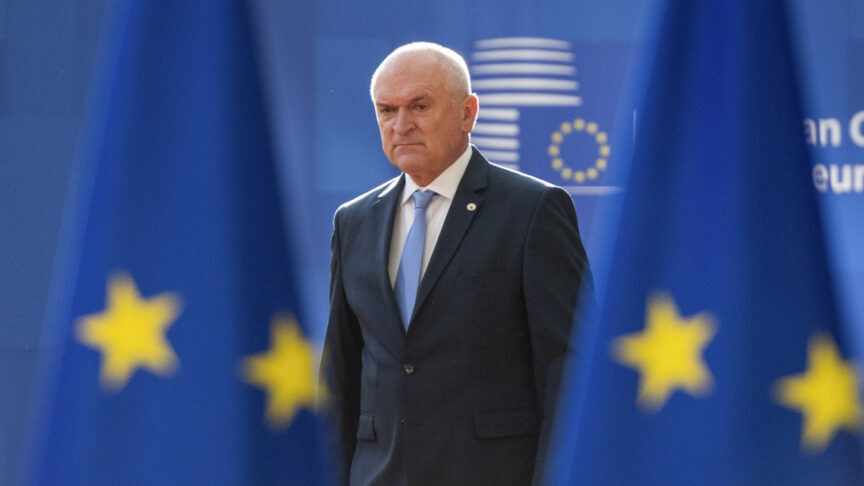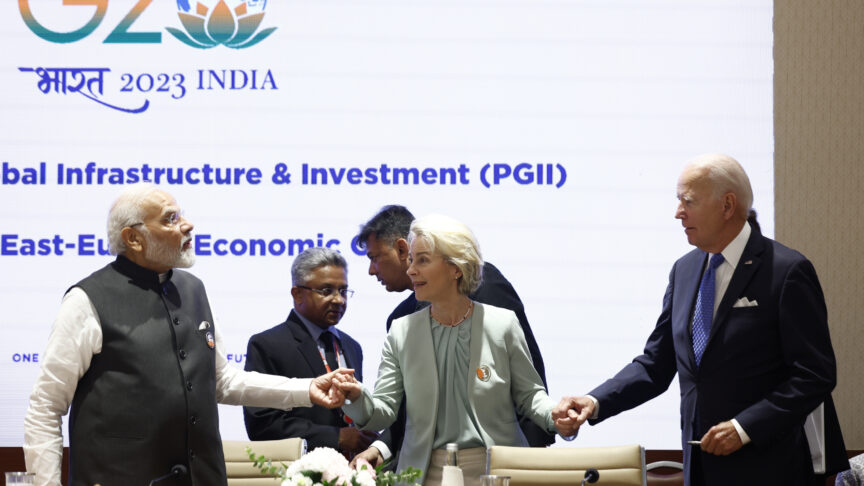ECFR turns 10, a reflection
Speech by German President Frank-Walter Steinmeier to mark ECFR's tenth anniversary.
If indeed a week is a very long time in politics, can we really be surprised that the world has taken unexpected turns over these past ten years since the European Council on Foreign Relations was founded in 2007?
When I went back to re-read my speech at the grand launch of the ECFR on November 9, 2007 – and I am sure you have all done the same before coming here… – I was struck by two things:
First, it turns out we were pretty good in outlining many of Europe’s core challenges: the future of transatlantic relations, the future of disarmament and security on our continent, how to deal with Russia, how to manage global competition over energy and resources. Much of this, plus the permanent adaptation of the institutional framework for a coherent EU foreign policy, remains high on our agenda today.
But secondly, when I look back it is remarkable how fundamentally our mental frame has been changed by unexpected turns:
- the global financial crisis of 2008;
- the Eurozone crisis that fully emerged in 2010 and that continues to test the cohesion of our monetary union and the convergence of Europe’s economies;
- the crisis with Russia culminating in the annexation of Crimea in early 2014 and the conflict in Eastern Ukraine,
- the refugee and migration crisis since the summer of 2015.
And of course, I could add to this list the Brexit vote of June 2016, the election of a should I say unexpected US president, or the broader – and in my view absolutely critical – challenge of the internal polarization of many of our societies. We are faced with an environment with seemingly unprecedented levels of uncertainty and one in which it has become much harder to distinguish between foreign and domestic challenges – not an easy environment for policymakers, but also a tough task for policy analysts.
I will not attempt to outline comprehensive political answers tonight. But I think we need our best analytical minds to focus on a set of at least three challenges: First, a renewed debate on the effects and the future path of globalization that also addresses the effects of rapid change on people’s identity. Second, a strategy how to navigate and how to communicate the complexity of today’s interconnected world. We have to navigate a world of unprecedented complexity. We are asked at the same time to communicate our directions in 140 characters. That is what you call a “mission impossible”… And finally, how the effects of technology, and above all the digital revolution, are changing the content and the shape of political discourse in our open societies.
These are the issues that will define the future of our democracies and indeed the future of the West, both as a normative concept and as a – more or less unified – political actor.
I don’t believe in resignation when looking at the world today. I rather believe in the value of sober analysis and applied reason. Yet the value of reason itself seems to be up for discussion these days. So I do think there is a reason for humility. We need to revisit some of our long-held assumptions.
That includes my own country – Germany. Many felt that the miracle of 1989, the reunification of Germany and of Europe, would start an era of global convergence around the ideals of pluralism and democracy, of the rule of law and human rights, and of ever more integrated market economies. We had somehow reached our final destination. That was the dominant impression in those days. Everybody else would change and adapt – but not us. However, we have learned that history evolves in much less linear ways than human expectations. Alternative models of exercising power and of maximizing prosperity have obviously gained attraction. Terrorism and the nihilistic philosophy of violence are a modern scourge across the globe. We have learned that even the process of European integration is not irreversible but that it depends on the political will, the political decisions, and the political skill of each new generation of citizens and decision-makers. The future is open! It is our task to make the most of it.
Responsible decision-making is infinitely easier with an accurate sense of where we are. ECFR has been a constant source of this type of reflection over the past ten years. You have also challenged Germany in the way it thinks about its own role in Europe and beyond. I know that some of your contributions to this debate have met with less than fullhearted applause – but applause is not what you have been founded for. Suffice it to say diplomatically that ECFR’s contributions did not go unnoticed. And – if I may add – this debate has also had an effect on ECFR itself which has gradually expanded its presence here in Berlin. I am delighted to hear that you intend to take this presence to a new level in this tenth year.
I would like to extend my sincere congratulations on ECFR’s tenth anniversary! I have great respect for all the intellectual effort and policy advice that ECFR’s team has produced over this past decade. I have personally profited from your insights and ideas more than once in my previous capacity.
In these first few months in my new office I have travelled to quite a number of EU member states and I could sense a growing political will and a renewed energy: A strong will to pursue a common future at 27. A renewed energy to turn this political will into practical solutions for the big challenges within and outside our Union. Yet much remains to be done.
So from the vantage point of my new role as Federal President here is my recommendation for ECFR’s next ten years: Keep asking the hard questions – not just us, but also yourselves.
- How can we build a more capable and a more flexible Europe without putting our unity of purpose and internal cohesion at risk?
- How do we reap the benefits of technological innovation while limiting the risks of its disruptive effects on our societies?
- How do we develop new diplomatic tools to deal with the threats of cyber vulnerabilities, of the proliferation of drone technology, of the corroding effects of terrorism?
- And finally – and from my point of view most importantly – how do we renew our democracies in the face of a rapidly changing international environment in ways that help us maintain this most remarkable promise that is at the heart of our ideals and of our global attractiveness: mainly a society in which people can live in freedom and dignity, can develop their skills and talents, can freely express their individual opinions and preferences?
Even these few questions illustrate that it is less and less possible to distinguish the spheres of foreign and domestic. Innovations, long-term trends and sudden crises around the world directly affect the lives of our citizens and the future of our nations – and vice versa the example we set at home radiates across the globe and determines our global reach and reputation.
I know full well that Europeans are sometimes prone to an overdose of self-doubt. The concept of doubt is important. But it is the probing and searching quality of reasonable doubt, not self-doubt, that leads to clearer thinking, that produces better decisions, and ultimately more successful policies.
So here is my wish for the future of the European Council on Foreign Relations on this anniversary occasion: keep exploring new ideas and opportunities for Europe with an open mind and an optimistic spirit.
The advice, the criticism and the creativity of ECFR is as critical to Europe’s future as it was ten years ago.
Keep up your great work and happy birthday!
The European Council on Foreign Relations does not take collective positions. ECFR publications only represent the views of their individual authors.


